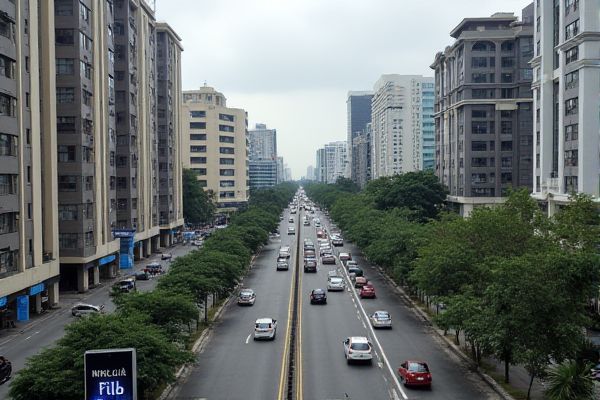
Healthcare facilities in Indonesia: Public and private hospitals availability. National health insurance program, BPJS. Limited English-speaking medical staff. Specialist referral system. Varying facility standards. Pharmacies widely accessible. Emergency services availability. Traditional medicine practices. Public health center (Puskesmas). Medical evacuation options.
Public and private hospitals availability.
As of 2022, Indonesia has a total of 2,985 hospitals, with 1,058 being public hospitals and 1,927 being private hospitals. The private sector dominates the healthcare landscape, with private hospitals often offering better facilities, modernization, and professional capabilities compared to public hospitals. For more detailed insights into the healthcare system, you can visit the Statice Health website.
National health insurance program, BPJS.
The national health insurance program in Indonesia, known as BPJS Kesehatan, is a mandatory scheme that provides universal health coverage, including basic, advanced, and hospitalization services. It is managed by the Social Security Administering Body for Health and is financed by member premiums and government subsidies. By the end of 2021, the program had successfully covered almost 85% of the Indonesian population, highlighting its comprehensive reach and importance within the country's healthcare system. For more detailed insights into this mandatory [healthcare social security](https://indonesia.acclime.com/guides/mandatory-healthcare-social-security/), it’s essential to understand the effectiveness and efficiency of this initiative in ensuring public health access across diverse regions in Indonesia.
Limited English-speaking medical staff.
In Indonesia, accessing healthcare as a foreign visitor presents certain challenges, particularly due to language barriers. Public health facilities often lack English-speaking medical staff, which can result in communication difficulties for non-Indonesian speaking patients. However, private hospitals are generally better equipped, not only with advanced medical equipment but also with staff who are more likely to speak English, aiding in patient interaction. This language barrier is a significant disadvantage for medical tourists, as highlighted in the exploration of Indonesia's potential for Medical Tourism, which is a burgeoning industry in the region. Addressing these communication issues is essential for enhancing the medical tourism experience and ensuring that tourists receive the best possible care during their stay in Indonesia.
Specialist referral system.
In Indonesia, the specialist referral system has been modified with the introduction of a horizontal referral policy by BPJS Kesehatan, where Primary Care Providers (PCPs) refer patients to other PCPs with more resourced facilities instead of directly to specialists or hospitals. This adjustment has resulted in reduced hospital outpatient visits and significant cost savings. For more details, you can read the full article on the BPJS Kesehatan website.
Varying facility standards.
In Indonesia, healthcare facilities vary significantly in standards, with public hospitals often lacking investment, modernization, and professional capabilities, especially outside major cities. In contrast, private hospitals are generally cleaner, more organized, and better equipped with modern technologies and professional staff. For more detailed insights on this topic, you can visit the article on Healthcare in Indonesia. This disparity highlights the ongoing challenges faced by the Indonesian healthcare system, underscoring the need for focused improvements and investments to ensure a more equitable access to quality healthcare across the nation.
Pharmacies widely accessible.
Pharmacies in Indonesia are widely accessible, driven by customer preferences for convenient and affordable healthcare services, the adoption of digital technologies, and the government's efforts to improve healthcare access, particularly in rural areas, contributing to significant market growth. For more information on this topic, you can visit the Statista website, which provides comprehensive insights into the evolving pharmacy landscape in Indonesia.
Emergency services availability.
Emergency services in Indonesia encounter substantial challenges, notably the low utilization of ambulances stemming from lack of awareness and prohibitive costs. As a result, a mere 10% of emergency patients opt for ambulances, with the majority resorting to private cars and taxis for transportation to emergency departments. Furthermore, there is a critical necessity for heightened public awareness regarding the Public Safety Center (PSC) and the 119 call system to bolster pre-hospital care.
Traditional medicine practices.
In Indonesia, particularly in Bali, traditional medicine practices are being integrated into modern healthcare facilities. At least six hospitals and numerous community health centers are now offering traditional healing treatments. These treatments include acupuncture, prana, and the use of medicinal plants as part of an effort to preserve local wisdom and attract tourists. The [traditional healing treatments](https://english.news.cn/20221014/efe62a424a894a78a0e7632c07dd537a/c.html) are becoming an essential part of healthcare services, reflecting the rich cultural heritage of the region while catering to increasing tourist interest in holistic health practices.
Public health center (Puskesmas).
Puskesmas, or Community Health Centers, are government-mandated facilities in Indonesia that provide primary healthcare services, including maternal and child health care, general outpatient curative and preventive services, immunization, and communicable disease control. There are two types of Puskesmas: those with beds, often located in remote areas and providing basic emergency obstetric care, and those without beds, which act as outpatient facilities and may refer serious cases to higher-level healthcare services. For more detailed information on Puskesmas, you can visit the Wikipedia page.
Medical evacuation options.
Indonesia offers several medical evacuation options to ensure the swift and safe transport of patients requiring urgent care. Services like Horizon Air Ambulance provide 24/7 worldwide air medical flights to and from Indonesia, promising high-quality care through experienced medical staff and fully equipped private jets. Additionally, Indojet Medic delivers rapid air evacuation services via jets and helicopters, efficiently transporting patients to the nearest hospitals within Indonesia or internationally, all while utilizing state-of-the-art medical equipment and highly skilled teams. Furthermore, Global Doctor plays a critical role by offering emergency medical evacuation and repatriation services, partnering with other medical evacuation and insurance companies globally to ensure a comprehensive medical care network.
